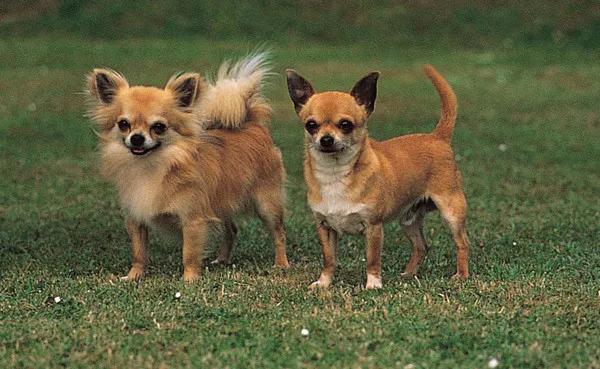Chihuahuas, like all dogs, have a digestive system that is tailored to their unique physiology. Due to their small size, Chihuahuas have a relatively high metabolic rate compared to larger breeds. This means they digest food more quickly and, as a result, may need to eliminate waste more frequently.
Factors Affecting Poop Frequency
Diet: The type and quality of food you provide to your Chihuahua significantly affect their digestion and, consequently, their defecation frequency. High-fiber diets tend to produce more regular bowel movements, while low-fiber diets can lead to constipation or irregularities.
Age: Puppies tend to poop more frequently than adult Chihuahuas due to their smaller digestive tracts and higher energy needs. Senior dogs may also experience changes in their bowel habits due to slower metabolism and potential health issues.
Health Status: Any changes in health, such as gastrointestinal infections, parasites, or chronic conditions like diabetes, can alter your Chihuahua’s poop schedule. Regular veterinary check-ups are essential to monitor and maintain your pet’s health.
Activity Level: More active dogs generally have more regular bowel movements due to increased metabolism and physical activity, which stimulates digestion.
Hydration: Adequate water intake is crucial for proper digestion. Dehydration can lead to constipation, while well-hydrated dogs tend to have smoother and more frequent bowel movements.
Typical Poop Frequency
On average, a healthy adult Chihuahua should poop between 1 to 4 times a day. This range can vary depending on the individual dog‘s diet, age, health, and activity level. Puppies might poop as often as 5 times a day due to their rapid growth and frequent feeding schedule.
Monitoring Your Chihuahua’s Poop
Consistency: Healthy Chihuahua poop should be firm but not hard, with a slightly moist surface. If the stool is too hard or too soft, it might indicate dietary or health issues.
Color: Normal poop color ranges from medium to dark brown. Any significant color changes, such as black, red, or white, can indicate potential health problems and should be discussed with your veterinarian.
Size and Shape: The size and shape of your Chihuahua’s poop should be proportional to their body size. Unusually large or misshapen stools can be a sign of digestive issues.
Frequency Changes: Any sudden changes in how often your Chihuahua poops should be noted and monitored. If your dog suddenly starts pooping more or less frequently, it could indicate a dietary or health issue.
Adjusting Diet for Optimal Digestion
Feeding your Chihuahua a balanced diet is crucial for maintaining regular bowel movements. Here are some tips for optimizing your dog’s diet:
High-Quality Dog Food: Choose dog food that lists meat as the primary ingredient and avoids fillers like corn and soy, which can disrupt digestion.
Fiber Content: Ensure the food has adequate fiber to promote healthy digestion. You can also supplement with fiber-rich foods like pumpkin or sweet potatoes if needed.
Regular Feeding Schedule: Feed your Chihuahua at the same times each day to help regulate their digestion and poop schedule.
Avoid Table Scraps: Human food can upset your Chihuahua’s stomach and lead to irregular bowel movements.
Hydration: Make sure your Chihuahua has constant access to fresh water to prevent dehydration and constipation.
Health Conditions Affecting Poop Frequency
Several health conditions can affect how often your Chihuahua poops. It’s essential to be aware of these and seek veterinary care if you notice any unusual changes in your dog’s bowel habits:
Gastrointestinal Infections: Bacterial or viral infections can cause diarrhea or constipation, altering your dog’s poop frequency.
Parasites: Worms and other parasites can cause digestive disturbances, leading to increased or decreased defecation.
Food Allergies or Intolerances: Certain ingredients in your Chihuahua’s food can cause gastrointestinal upset, affecting their bowel movements.
Chronic Conditions: Diseases like diabetes, thyroid disorders, or inflammatory bowel disease can affect digestion and poop frequency.
Potty Training and Routine
Proper potty training and establishing a routine are crucial for managing your Chihuahua’s poop schedule. Here’s how to create a successful potty routine:
Consistent Schedule: Take your Chihuahua out to poop at the same times each day, such as after meals and before bedtime.
Positive Reinforcement: Reward your dog with treats and praise when they poop outside to encourage good behavior.
Observation: Pay attention to your Chihuahua’s behavior and take them outside when you notice signs they need to poop, such as sniffing or circling.
Crate Training: Use a crate to help with potty training, as dogs typically do not like to soil their sleeping area.
When to See a Vet
While some variations in poop frequency are normal, certain signs warrant a visit to the veterinarian:
Persistent Diarrhea or Constipation: If your Chihuahua experiences prolonged diarrhea or constipation, it’s essential to seek veterinary care to determine the underlying cause.
Blood in Stool: Blood in your dog’s stool can indicate serious health issues and should be addressed immediately.
Sudden Changes in Frequency: Any abrupt and unexplained changes in how often your Chihuahua poops should be evaluated by a vet.
Other Symptoms: Accompanying symptoms such as vomiting, lethargy, loss of appetite, or abdominal pain require prompt veterinary attention.
See also: What is the Largest German Shepherd
Conclusion
Understanding how many times a day a Chihuahua should poop involves considering various factors, including diet, age, health, activity level, and hydration. On average, a healthy adult Chihuahua should poop between 1 to 4 times daily. Monitoring your dog’s bowel habits, providing a balanced diet, and seeking veterinary care when necessary are crucial steps in ensuring your Chihuahua’s digestive health. By staying attentive to your pet’s needs and maintaining a consistent routine, you can help your Chihuahua lead a healthy and comfortable life.


